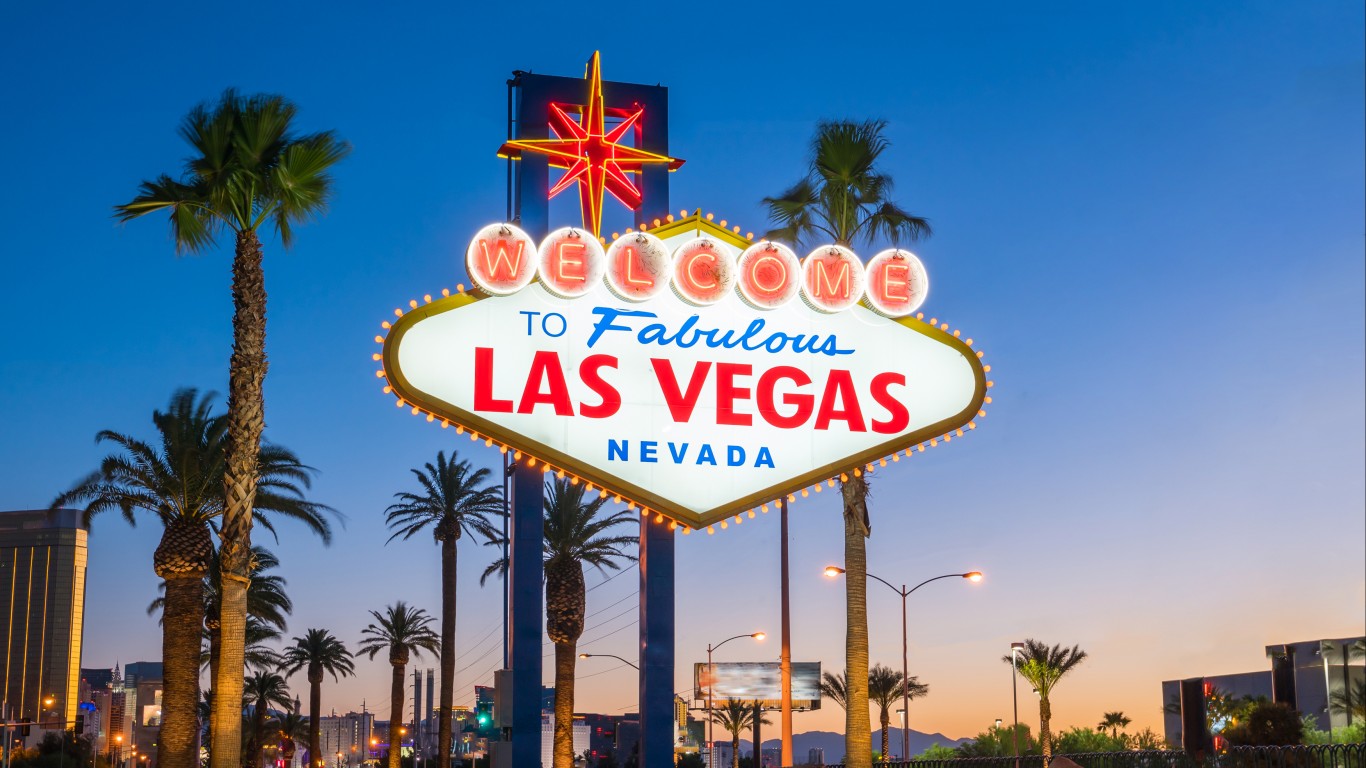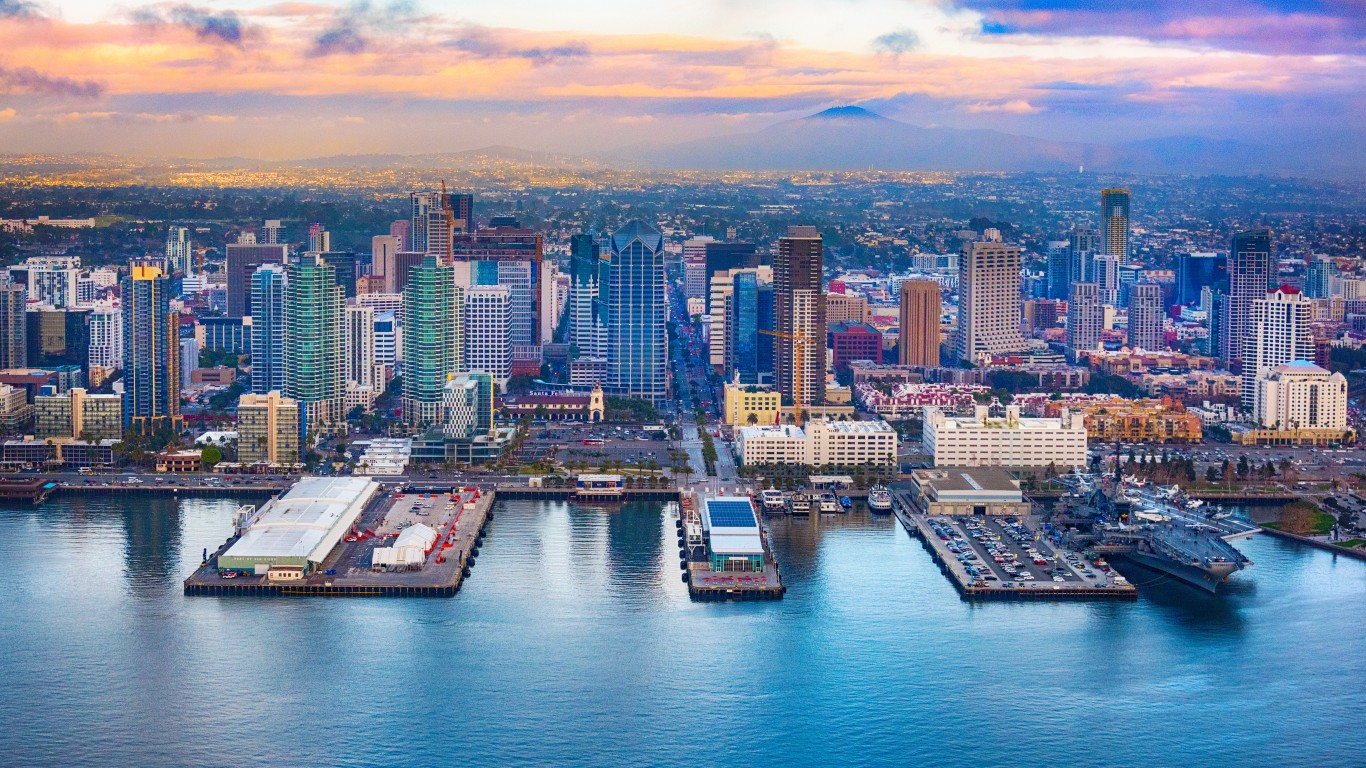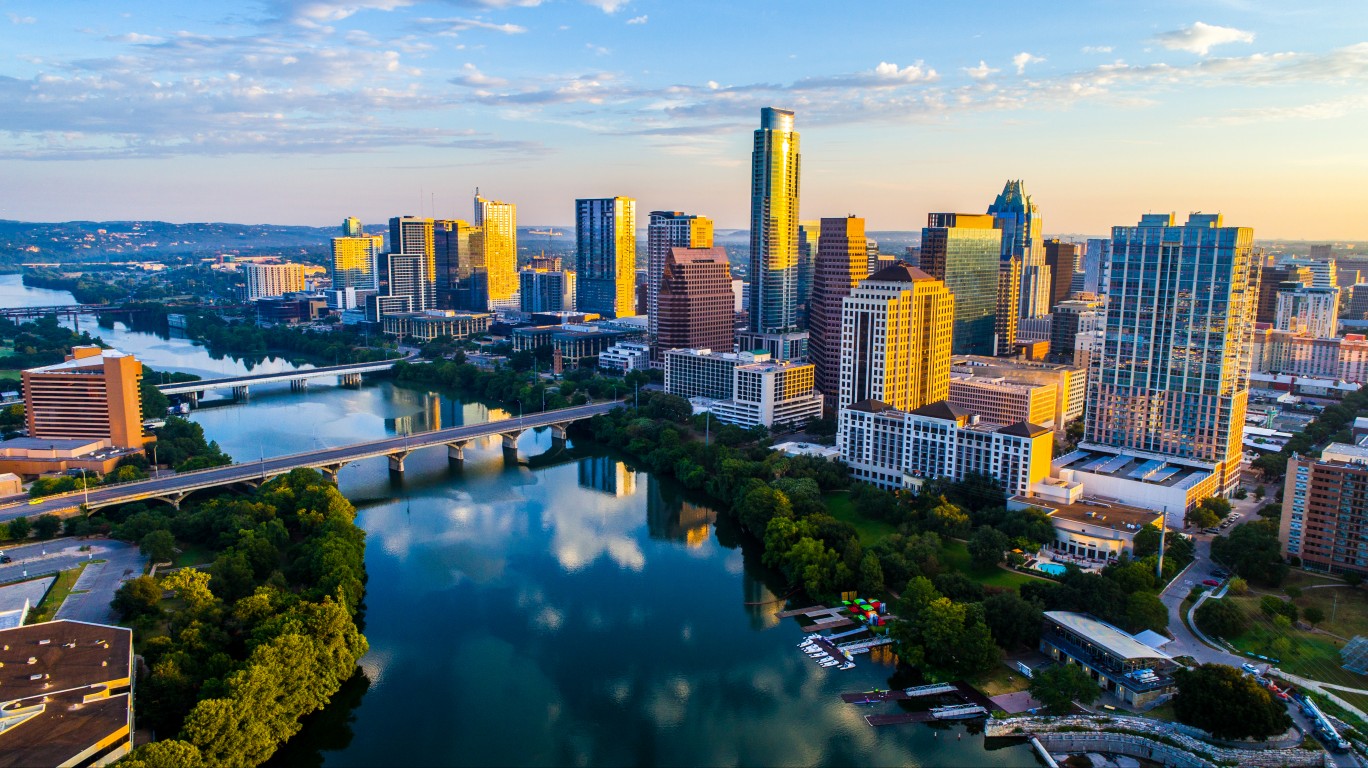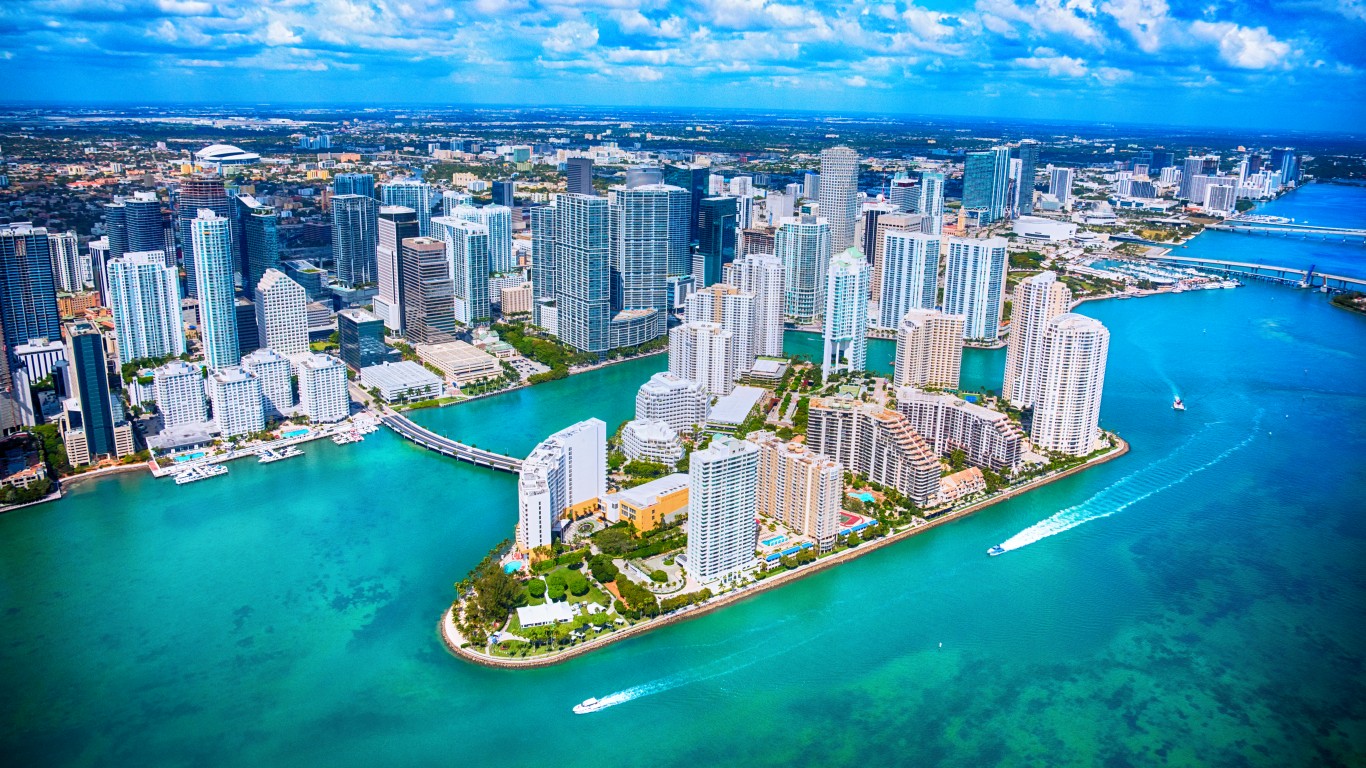Special Report
Why Are These Cities Attracting the Most Startups?

Published:
Last Updated:

Being able to start a successful business is central to the American dream. Many Americans have come from poverty and with some hard work, good ideas, and sound management became successful business leaders.
Over the last few decades, a new culture of tech startups has emerged, several of which have grown into multi-billion dollar corporations. Many new entrepreneurs are trying to make the next Facebook or Uber. As of last year, the number of tech-based startups had grown by 47%.
Growth in the number of tech startups specifically is due in large part to the advent of widely-available high-speed internet. The internet has also made it possible to start a new business from just about anywhere in the United States, but some places have have a much more active startup culture.
Click here to see why these cities are attracting the most startups.
Many Americans think of Silicon Valley, located within the San Jose-Sunnyvale-Santa Clara metro area, as the epicenter of entrepreneurial activity in the United States. But based on a recent report on startup activity in U.S. metro areas, the Valley does not even rank among the top 10 metro areas for startups — though several other California cities do.
24/7 Wall St. used data from 2018 edition of The Kauffman Index of Startup Activity to determine the metropolitan areas with the highest levels of entrepreneurial activity. This index considers the percentage of the population starting a business, the share of businesses that are considered startups, and the employment situation of people starting their own businesses.
While these factors are important, there are many other considerations that can be advantageous to those starting a new company. An area’s cost of living, share of well-educated residents, and access to investors and customers are all factors than could make or break a startup.
24/7 Wall St. reviewed the The Kauffman Foundation’s Index of Startup Activity, listing the five metropolitan areas with the highest levels of startup activity. The index has three components: the rate of new entrepreneurs, the opportunity share of new entrepreneurs, and startup density. The rate of new entrepreneurs measures the share of a population that became entrepreneurs in a given month. The opportunity share of new entrepreneurs tracks the percentage of new entrepreneurs who left a job to start their own business. Startup density is defined as the number of startups per 1,000 companies. A startup is defined as a company less than a year old with at least one employee besides the owner.

5. Las Vegas-Paradise
> Startups per 1,000 businesses: 120.7
> Pct. population started new business per month: 0.42%
> Monthly cost of living: $2,701
Though it is known as America’s playground, those living in Las Vegas also know how to work hard. No other major metropolitan area has a higher startup density than Las Vegas. More than 12% of companies in the Las Vegas-Paradise metropolitan area are less than a year old and employ at least one other person besides the owner.
Of the top places to form a new business, Las Vegas is one of the cheapest. In most of the top 40 metro areas for startups, monthly living costs for an individual exceed $3,000. But with around $2,700 in monthly costs in Las Vegas, entrepreneurs are less likely to have the funding issues that can plague new companies. The vast majority of new businesses that fail do so because of cash flow issues.
Vegas is also home to numerous expos and tradeshows like the Consumer Electronics Show. These events allow small businesses to show off new products and services to investors and consumers from all over the world.
[in-text-ad]

4. San Diego-Carlsbad-San Marcos
> Startups per 1,000 businesses: 95.9
> Pct. population started new business per month: 0.49%
> Monthly cost of living: $3,903
According to Kauffman’s 2017 startup activity rankings, the San Diego metro area improved as an environment for startups more than anywhere else in the country. In 2016, the area was not even in the top 10 places for new companies. When workers leave their existing jobs to pursue entrepreneurship, the prospect of starting a new business are promising enough to lure people away from a steady paycheck. Nationwide, 86.3% of entrepreneurs were employed when they started their new business, but in San Diego 82.5% were, meaning a lower share of people left their jobs to open a new startup.
Many people think of Silicon Valley as the premier California area for startups. Lately, however, neighbor San Diego has been the home of a number of up and coming tech businesses like Taphunter. The service provides a platform for bars and restaurants to seamlessly update their menus across all online platforms to keep patrons in the know about what drinks they have on draft.

3. Los Angeles-Long Beach-Santa Ana
> Startups per 1,000 businesses: 92.3
> Pct. population started new business per month: 0.56%
> Monthly cost of living: $3,569
No major city in America has a higher share of residents starting their own businesses than Los Angeles. In a given month, some 0.56% of Los Angeles adults start their own business, tied with Miami for the highest share of new entrepreneurs in the country.
Costs can be a significant obstacle to grow a business. It can be prohibitively expensive to offer the salary and benefits needed to entice top-tier talent. While the Los Angeles area is one of the more expensive large cities for startups, it has one of the lowest health care costs. Health care in the typical U.S. city costs nearly $400 per month, but in the L.A. metro area, the average health care cost is just $262.

2. Austin-Round Rock-San Marcos
> Startups per 1,000 businesses: 104.5
> Pct. population started new business per month: 0.51%
> Monthly cost of living: $3,197
Austin has one of the best-educated populations among cities with high rates of entrepreneurship. Some 44.8% of adults in the city have at least a bachelor’s degree, well above the 32.0% national share. Because Austin’s population tends to be well-educated, startups have a wide array of attractive candidates with specialized skills to consider for hire.
Perhaps as a result of the city’s highly skilled workforce, there is no shortage of startups in Austin. More than 10% of companies in the city are less than one year old and have at least one employee, fourth highest among major cities.
[in-text-ad]

1. Miami-Fort Lauderdale-Pompano Beach
> Startups per 1,000 businesses: 107.8
> Pct. population started new business per month: 0.56%
> Monthly cost of living: $3,107
According to the Kauffman Foundation’s latest report, The Miami-Fort Lauderdale-Pompano Beach metro area has the most startup activity of any major U.S. metro area. In a given month, 0.56% of the Miami area’s residents become entrepreneurs, tied with Los Angeles for the highest rate in the country.
Miami also has the second highest startup density in the country. Some 10.8% of companies are less than a year old and have at least one employee other than the founder, behind only Las Vegas. The percentage of Miami small businesses with only a handful of employees has increased significantly over the past few decades. In 1983, 47.3% of small businesses in the area had fewer than five employees. By 2014, 64.7% of Miami area small businesses had four or fewer employees.
The thought of burdening your family with a financial disaster is most Americans’ nightmare. However, recent studies show that over 100 million Americans still don’t have proper life insurance in the event they pass away.
Life insurance can bring peace of mind – ensuring your loved ones are safeguarded against unforeseen expenses and debts. With premiums often lower than expected and a variety of plans tailored to different life stages and health conditions, securing a policy is more accessible than ever.
A quick, no-obligation quote can provide valuable insight into what’s available and what might best suit your family’s needs. Life insurance is a simple step you can take today to help secure peace of mind for your loved ones tomorrow.
Click here to learn how to get a quote in just a few minutes.
Thank you for reading! Have some feedback for us?
Contact the 24/7 Wall St. editorial team.